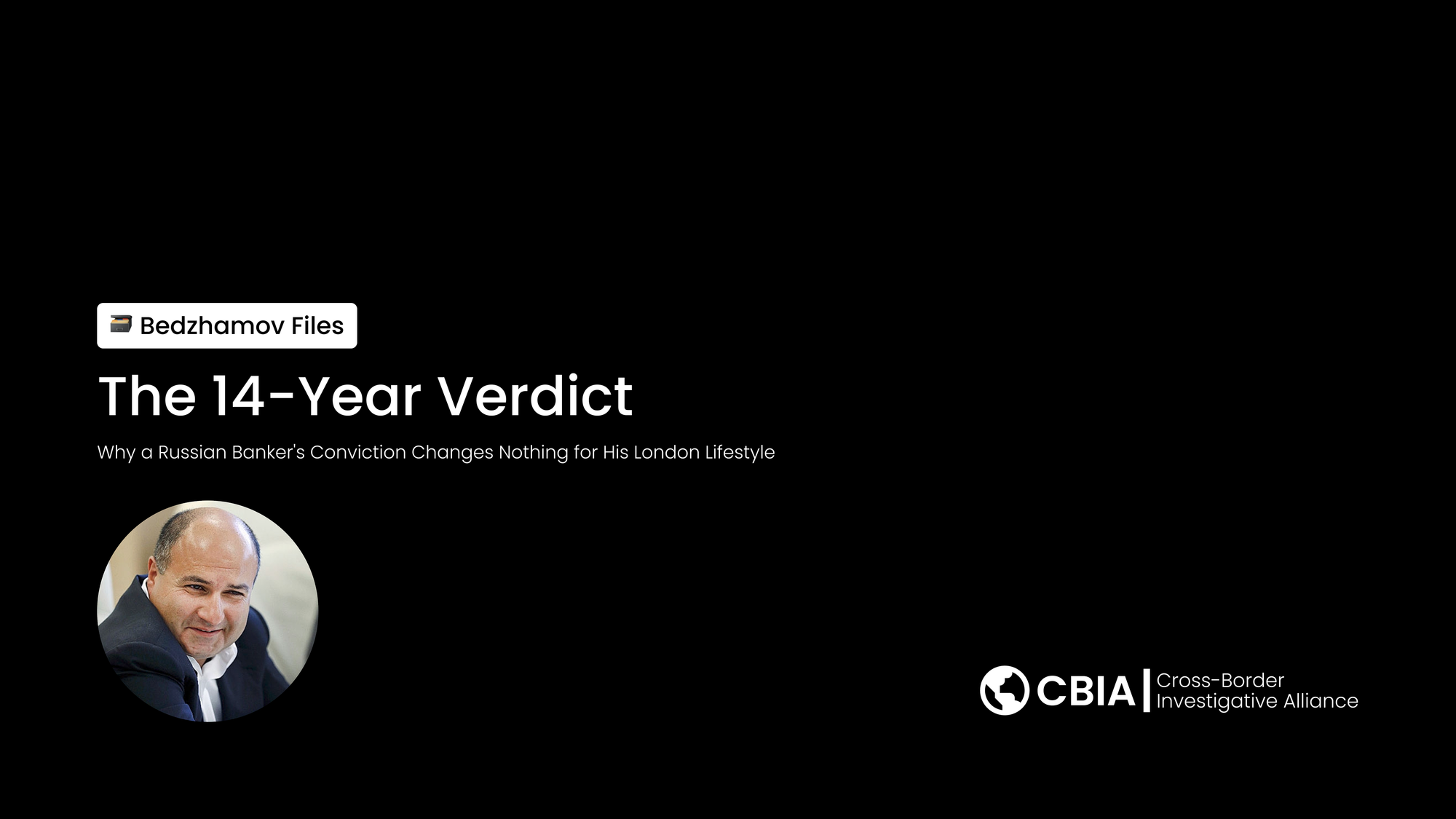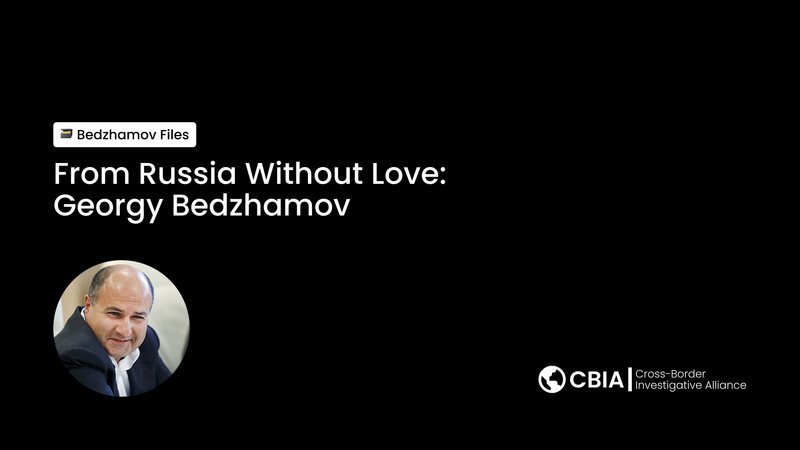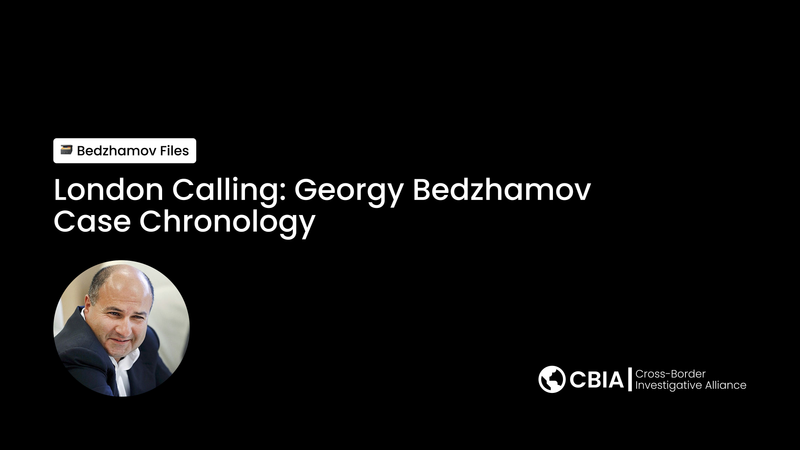The 14-Year Verdict: Why a Russian Banker's Conviction Changes Nothing for His London Lifestyle

A Sentence Without Shackles
While Georgy Bedzhamov enjoys the comforts of his £35 million Belgravia mansion possibly deciding between a flat white or a cappuccino a Moscow court has just sentenced him to 14 years in prison for embezzling £2 billion. The stark disconnect between legal verdict and practical reality illuminates a fundamental challenge in international financial crime enforcement: how convicted fraudsters can live freely abroad while their victims remain uncompensated. This case exposes the complex interplay between criminal justice, civil asset recovery, and international law that allows such paradoxes to persist.
The Moscow Verdict: Justice in Absentia
In 2024, Moscow's Khamovnichesky Court sentenced Georgy Bedzhamov, former co-owner of Vneshprombank, to 14 years in a high-security penal colony for large-scale fraud. The conviction relates to estimated losses of approximately $2 billion from the bank's collapse, representing one of Russia's largest banking fraud cases.
The in absentia verdict follows years of legal proceedings that began with the 2016 collapse of Vneshprombank, once Russia's 40th largest lender. Bedzhamov's sister, Larisa Markus, who served as the bank's president, was sentenced to nearly nine years in Russian prison after being found guilty of the same fraud charges. However, Bedzhamov had already fled the country before his sister's arrest, establishing a pattern of evasion that continues today.
The Scheme: A Criminal Enterprise Exposed
Russian prosecutors alleged that between 2009 and 2015, Bedzhamov and Markus orchestrated a sophisticated scheme to siphon funds from Vneshprombank through a network of shell companies. The fraud involved issuing non-repayable loans to entities they controlled while unauthorized withdrawals depleted client deposits, affecting everyone from state corporations to religious institutions.
Vneshprombank collapsed in 2016 when Russia's Central Bank revoked its license after discovering massive irregularities. The bank's failure occurred during Russia's broader banking sector cleanup between 2013-2016, which saw dozens of institutions lose their licenses due to violations or insolvency.
The scale of the fraud devastated the bank's creditors and depositors. Russia's Deposit Insurance Agency (DIA), tasked with protecting depositors and recovering assets, has pursued Bedzhamov across multiple jurisdictions in an attempt to recoup losses for victims of the bank's collapse.
The Great Escape: From Russia to Western Sanctuary
Bedzhamov's flight from Russia in December 2015 marked the beginning of a years-long international pursuit. Initially detained in Monaco in April 2016 following Russia's extradition request, he was released on bail in July 2016 after citing health concerns requiring heart surgery.
Monaco's refusal to extradite Bedzhamov set a precedent that would be repeated in other jurisdictions. By November 2016, Interpol removed him from its wanted list, effectively ending international cooperation in his capture. Bedzhamov subsequently relocated to London, where he has remained despite ongoing Russian criminal proceedings.
The banker's connection to international sport he served as Vice-President of the International Bobsleigh and Skeleton Federation may have facilitated his initial protection in Monaco, though this has never been officially confirmed.
The London Labyrinth: Civil Recovery vs. Criminal Justice
In London, Bedzhamov faces a complex web of civil litigation but no criminal prosecution. The UK High Court issued a Worldwide Freezing Order freezing his assets in the sum of £1.34 billion, representing one of the largest asset freezes in UK legal history.
The frozen assets include high-value properties and investments, most notably his Belgravia residence acquired through a British Virgin Islands shell company. However, the freezing order includes provisions for "ordinary living expenses," allowing Bedzhamov to maintain his lifestyle while legal proceedings continue.
In May 2024, the English High Court issued its judgment in Vneshprombank LLC v Bedzhamov, which clarified important matters relevant to interpretation of the UK asset freeze regime on Russia. The ruling established that asset freeze restrictions are only engaged if funds are actually owned by a designated person, not merely if there is "reasonable cause to suspect" such ownership.
Greenberg Traurig's London office represented Georgy Bedzhamov in UK Supreme Court proceedings, successfully upholding the "immoveables rule" and rejecting a Russian trustee-in-bankruptcy's attempt to influence the ownership of property in London. This victory demonstrates the effectiveness of his legal strategy in resisting Russian efforts to recover assets through UK courts.
The Asset Recovery Challenge
The Deposit Insurance Agency (DIA) filed a lawsuit against Bedzhamov in the High Court of London on behalf of Vneshprombank, with asset recovery firm A1 (part of Mikhail Fridman's Alfa Group) assisting in the search and recovery of assets.
Leaked documents revealed that Bedzhamov used companies and trusts set up by prominent Cypriot law firm Demetrios A. Demetriades LLC to shift and hide assets while on the run. This sophisticated offshore structure demonstrates the complexity facing asset recovery efforts, as funds have been traced through multiple jurisdictions including Cyprus, Liechtenstein, and Switzerland.
The involvement of professional service providers in multiple jurisdictions illustrates how the global financial system can be exploited to frustrate asset recovery efforts, even when civil courts have frozen substantial assets.
International Legal Dynamics
The Bedzhamov case exposes fundamental tensions in international law enforcement. While Russian courts can issue criminal convictions and sentences, their effectiveness depends on international cooperation for enforcement. Western courts, particularly in the UK, apply different standards when evaluating extradition requests, often prioritizing human rights considerations and due process concerns.
UK courts have consistently rejected Russian extradition requests in high-profile cases, citing concerns about the independence and fairness of the Russian judicial system. This creates a practical sanctuary for individuals facing Russian prosecution, regardless of the underlying merits of criminal charges.
The civil asset recovery route, while slower and more complex, has proven more effective in Western jurisdictions. Courts can freeze assets based on civil standards of proof while avoiding the political and human rights issues that complicate criminal extradition proceedings.
The Paradox of Modern Financial Crime
Bedzhamov's situation illustrates a broader paradox in contemporary financial crime enforcement. While globalization enables sophisticated criminal schemes that span multiple jurisdictions, the fragmented nature of international law enforcement creates opportunities for evasion.
Criminal convictions in one jurisdiction may carry little practical weight in another, particularly when political tensions affect cooperation. Meanwhile, civil proceedings can secure asset freezes but may not provide full justice for victims who seek criminal accountability alongside financial recovery.
The case also highlights how professional legal representation can successfully navigate these complex international legal frameworks. Bedzhamov's legal team has effectively used jurisdictional differences and procedural requirements to maintain his freedom while minimizing asset recovery by creditors.
Implications for Global Financial Crime
The Bedzhamov case serves as a template for understanding how sophisticated financial criminals can exploit international legal systems. Key factors enabling his continued freedom include:
Jurisdictional Shopping: Moving between jurisdictions with different legal standards and political relationships with the pursuing state.
Asset Structuring: Using complex offshore entities and trusts to obscure beneficial ownership and complicate asset recovery efforts.
Professional Networks: Engaging high-quality legal representation familiar with international law and cross-border enforcement challenges.
Timing: Fleeing before criminal proceedings conclude, creating complications for extradition requests.
Political Context: Benefiting from deteriorating diplomatic relationships that reduce international cooperation in law enforcement.
The Continuing Battle
As of 2024, the legal battle continues across multiple fronts. Russian authorities maintain their criminal prosecution efforts, while civil proceedings in London and other jurisdictions focus on asset recovery. Bedzhamov has been required to disclose the sources of his spending to the High Court of England and Wales, indicating ongoing judicial scrutiny of his finances.
However, the fundamental disconnect remains: criminal justice and civil asset recovery operate on different timelines and according to different legal standards. This creates opportunities for sophisticated defendants to exploit procedural differences and jurisdictional limitations.
Conclusion: The Limits of International Justice
The Bedzhamov case demonstrates both the reach and limitations of international efforts to combat financial crime. While civil courts can freeze substantial assets and criminal courts can issue severe sentences, the fragmented nature of international law enforcement creates significant opportunities for evasion.
For victims of bank fraud, the practical result is often incomplete justice. While some assets may eventually be recovered through civil proceedings, criminal accountability may remain elusive when defendants successfully flee to non-cooperating jurisdictions.
The case raises fundamental questions about the adequacy of existing international legal frameworks for addressing sophisticated financial crime. As long as jurisdictional differences create practical sanctuaries for financial criminals, cases like Bedzhamov's are likely to continue, highlighting the need for enhanced international cooperation and more effective enforcement mechanisms.
Ultimately, the 14-year sentence serves as a powerful symbol of Russian judicial disapproval but has little practical impact on Bedzhamov's daily life in London. This disconnect between legal verdict and practical consequence illustrates the ongoing challenges facing international efforts to combat financial crime in an interconnected but legally fragmented world.
Sources:
Legal Documents and Court Records
UK High Court: Vneshprombank LLC v Bedzhamov [2024] EWHC 1048 (Ch)
Court of Appeal: Vneshprombank LLC v Bedzhamov [2019] EWCA Civ 1992
UK Supreme Court: Bedzhamov case upholding "immoveables rule" – Greenberg Traurig press release
Legal and Financial Analysis
Bloomberg Law: “UK Judge Rules Funder Is Likely Owned by Sanctioned Russians” (May 7, 2024)
Bloomberg Law: “Putin's Billionaires Dodge Sanctions by Financing Lawsuits” (March 28, 2024)
Legal Firm Analysis
Harneys: “Sanctions case notes: Useful guidance on ‘reasonable cause’ – Vneshprombank v Bedzhamov”
Reed Smith: “UK asset freeze restrictions – ‘reasonable cause to suspect’ alone is not enough”
Selborne Chambers: Court of Appeal decision analysis (June 20, 2023)
Corker Binning: “Sanctions Ruling Opens Door For Enforcer To Clear Up Rules” (August 21, 2024)
Greenberg Traurig: “Successfully Represents Mr. Bedzhamov in UK Supreme Court Case”
Investigative Reporting
OCCRP: “Fugitive Russian Banker Used Cypriot Law Firm to Hide Assets, Move Money”
International Coverage
EU Reporter: “Russian court seizes another banker's property in London” (January 29, 2021)



